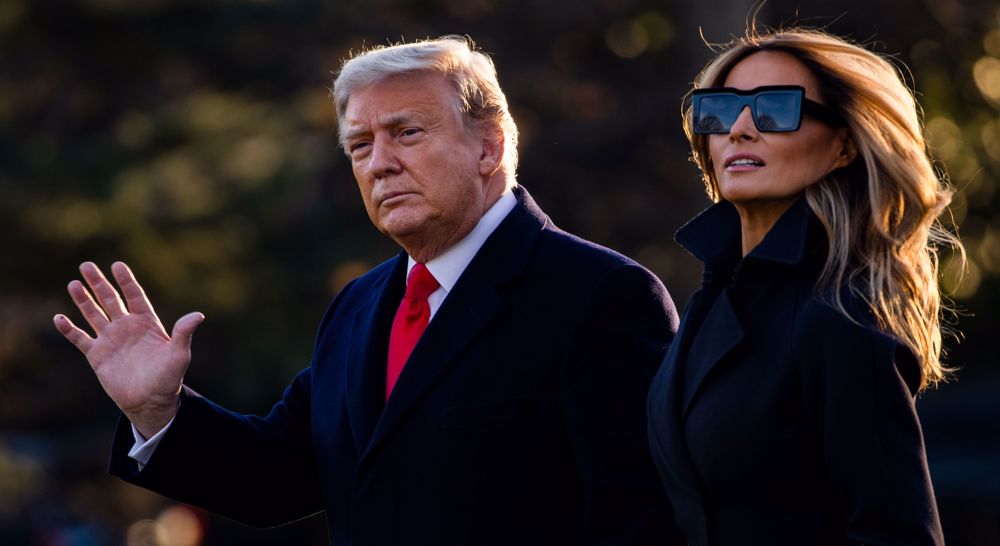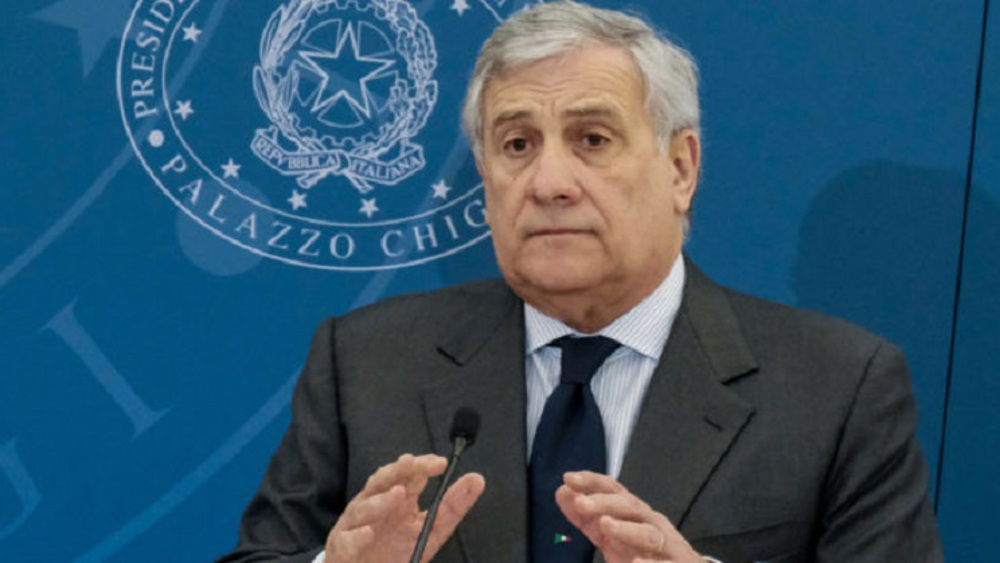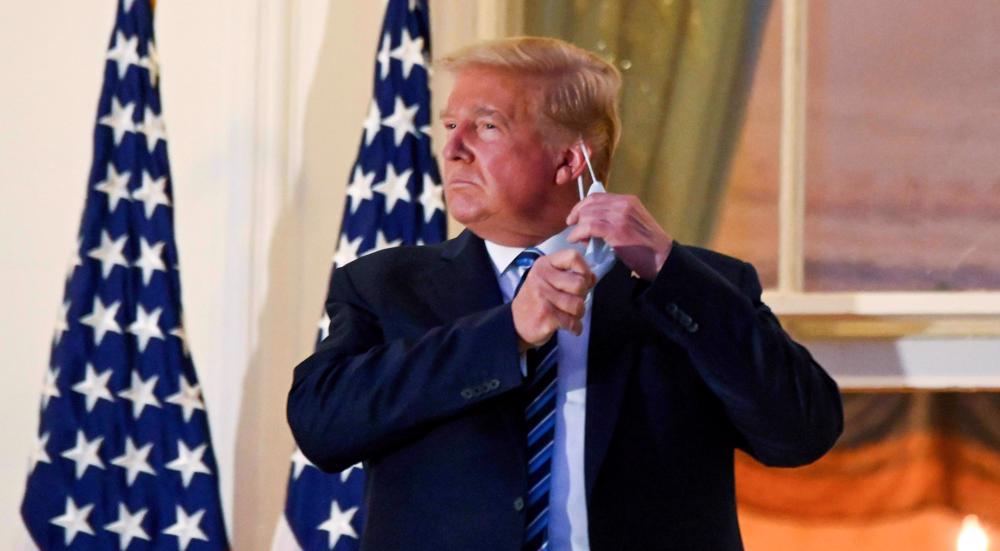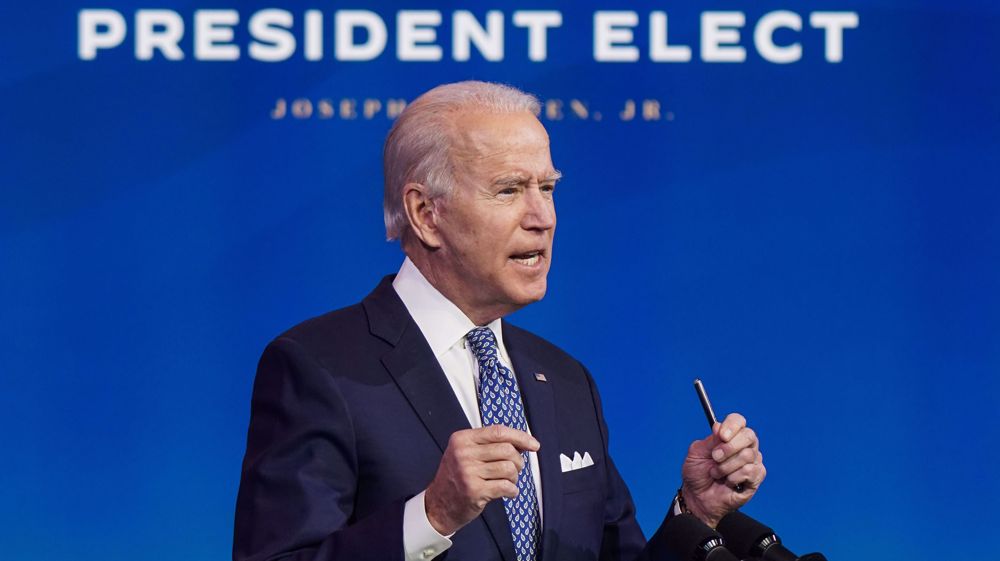Donald Trump strongly opposes, then suddenly approves pandemic aid package
On Saturday, millions of Americans lost their unemployment benefits as a result of the US President’s refusal to sign into law a 2.3 trillion dollar pandemic aid and spending package; he then went on to sign the bill into law on Monday.
The US President Donald Trump had declared the $600 check is not enough. This yet again displays not only the partisan divide, but how the US has failed the American people.
Donald Trump said he was unhappy with the massive bill, which provides 892 billion dollars in coronavirus relief, including extending special unemployment benefits, yet he had a sudden and total change of heart.
One-point-four trillion dollars is also needed for normal government spending.
The US president had said he would not be signing the bill in part because that one-off 600 dollar stimulus checks for struggling Americans are not large enough. He said the amount should be two-thousand dollars.
I am asking Congress to amend this bill and increase the ridiculously low $600 to $2,000, or $4,000 for a couple.
US President, Donald J Trump
Many economists are agreeing with Trump on this issue, saying the aid provided is too little. But opponents say the immediate support is still welcomed and necessary.
Republicans previously refused to increase checks
An increase to the amount on the checks was something Democrats had previously attempted to get. But Republicans refused to accept it, throwing into further doubt the future of any imminent financial relief for millions of struggling Americans.
However, US House Speaker Nancy Pelosi plans to hold a vote to approve the two-thousand dollar checks on Monday.
Another objection made by Trump was that the bill allots too much money to special interests, cultural projects, and foreign aid.
$600 for the past several months that Americans haven't received any assistance is almost nothing, it's $1 75, a day, and it's quite pathetic especially when you look at how the rest of the bill gives millions of dollars; it gives $33 million dollars to Juan Guido, it gives millions of dollars to Israel to regime change measures, and this $600 essentially is going to go to landlords, it's going to go to banks, Americans are going to see that money and it will be gone in the next moment.
Kyla Popouchet, Editor, Antiquista, New York
Trump’s refusal to sign the bill is not just affecting jobless benefits. A partial government shutdown will begin on Tuesday unless Congress can agree a stop-gap government funding bill before then.
The US president's move surprised many
The US president's move surprised many, particularly since Trump left nearly all of the negotiations to Treasury Secretary Steven Mnuchin, who made no push for the 2-thousand dollar stimulus checks that the US president is now seeking.
All through months-long wrangling between democrats and republicans over the stimulus package, Trump didn't say anything. He didn't object to the terms of the deal before Congress voted it through on Monday.
But since then, Trump has constantly complained about it. But now he has done an about face.
Had he continued to refuse to sign the bill, More than 14 million laid-off Americans could could have lost their unemployment benefits for weeks.
Break in payments inevitable
Even though Trump has finally agreed and signed it, the receipients of unemployment benefits are likely to suffer a break in payments.
States cannot pay out benefits for weeks that begin before the bill is signed. Now as a result of Trump’s previous refusal to sign the bill, benefits will not restart until the first week of January. But they will still end in mid-March, effectively trimming the extension to 10 weeks from 11.
Moreover, a series of additional relief provisions, including an eviction moratorium, are set to expire at the end of the month. Other temporary relief protections shielding millions of Americans from the brunt of the pandemic’s economic toll would have lapsed shortly after the New Year had no action been taken.
Top officials, including Pelosi and Mnuchin, are now privately discussing plans such as a stopgap spending bill in case Trump formally vetoes the measures by Monday. But it’s not clear how long that stopgap measure would last or whether Trump would sign it, if it makes none of the changes he wanted.
Trump may not be forced to veto legislation
Trump never said he would veto the legislation any way. However he may not have to. The legislation passed with the support of well more than two-thirds of both the House and Senate, easily surpassing the threshold required to override a veto if he actually did that.
There appears to be a partisan divide now Trump is saying he won't sign the stimulus package because it's too low, but we also have to look at the fact that when this bill was signed it was signed with a super majority in both houses, in both the House of Representatives and the Senate, and we got to also remember that the democrats now have the majority in the House of Representatives.
So because they had two thirds in both the House of Representatives and the Senate, it really doesn't matter if Trump refuses to sign it or not, of course, the Congress would hope that Trump signs it and that they can get it done.
But they could still veto his veto.
Kyla Popouchet, Editor, Antiquista, New York
But in this scenario, timing means everything. Legislation can become law 10 days after the bill is enrolled even without a presidential signature. But because the time frame overlaps with the end of the current Congress on January the third, and the convening of the 117th Congress, something called a pocket veto can become a possibility.
Pocket veto; action through inaction
A pocket veto is a legislative maneuver that allows the US president or another official with veto power to exercise that power over a bill by taking no action instead of affirmatively vetoing it.
If that happens, all legislation dies with Congress. So without Trump’s signature in the next 10 days, the bill would have to be reintroduced and voted on a second time. This means more delay in funding of the government and providing relief to struggling Americans and businesses.
Hamas thanks Iran, Resistance Front following achievement of ceasefire in Gaza
'Capitulation': Israeli officials and media concede Gaza defeat as truce unfolds
'Gaza has won': Social media users react to ceasefire with mix of relief, joy
Iran seeks South Korea’s assistance for AI, fiber-optic projects
VIDEO | Iran's 'Eqtedar' (Power) maneuver
Israel hits HTS military target in Syria for 1st time since fall of Assad
VIDEO | Press TV's news headlines
Israel has slaughtered 13,000 students in Gaza, West Bank


















 This makes it easy to access the Press TV website
This makes it easy to access the Press TV website